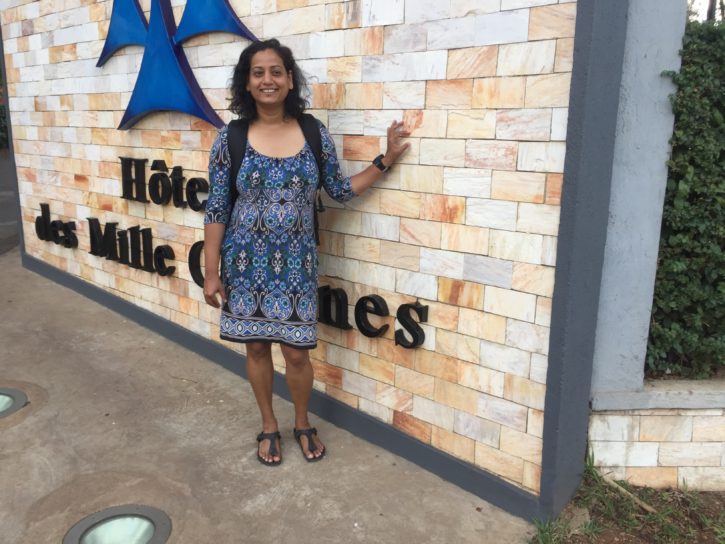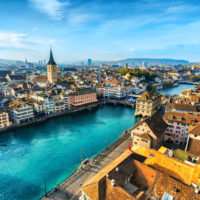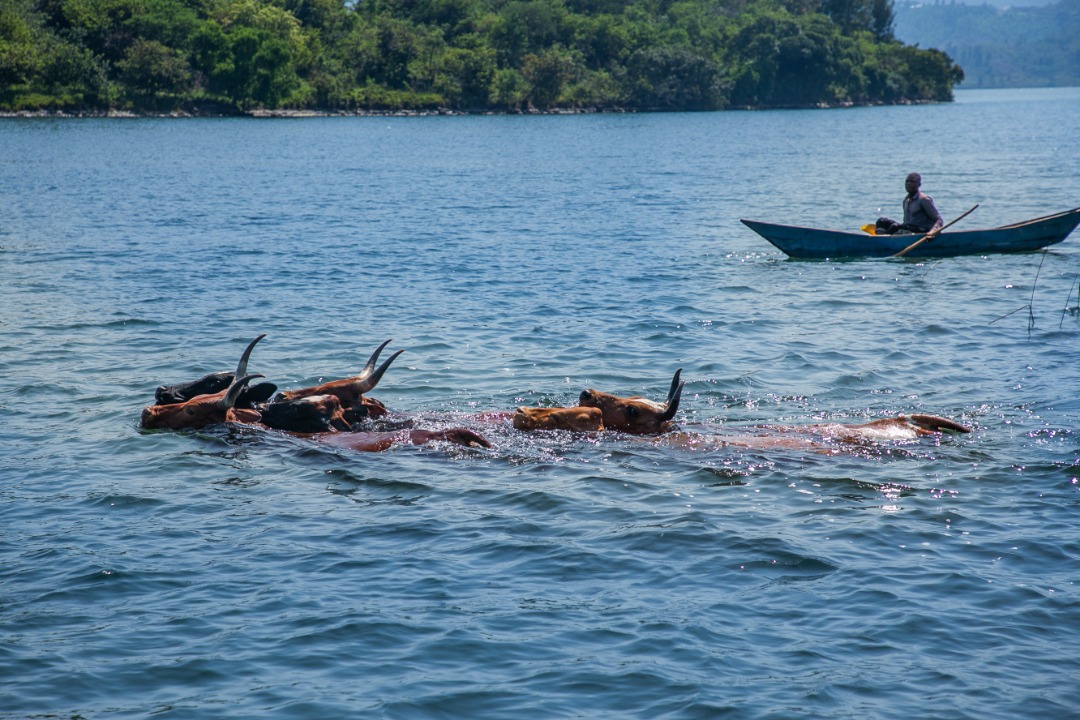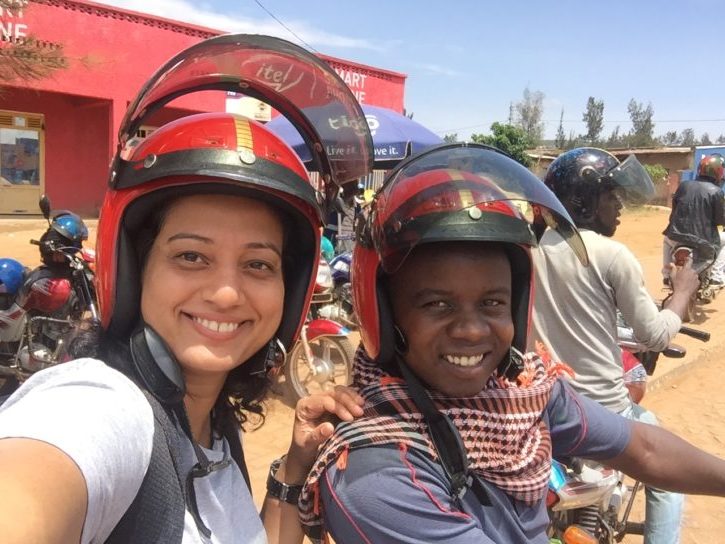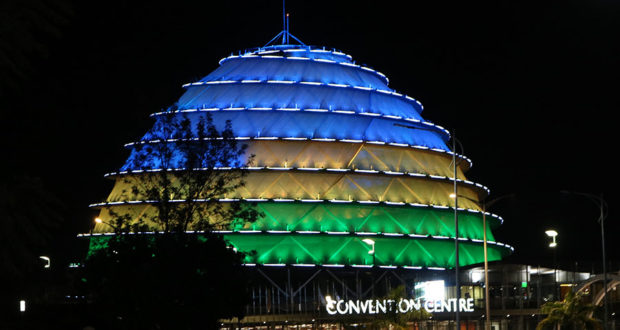Evening comes early and with it, the desire to drink Primus and Mutzig, Rwanda’s famous beer. The nap has refreshed me and I am ready to see and experience the city by night and immerse myself in the true Rwandan nightlife. This is how I end up at Chez Lando in Remera, a bustling suburb close to my guest house in Kimironko. Every car is checked before being allowed to drive inside the premises.
I am the only one on foot.
The dining area is large and airy and is nearly full. I am given a table in the centre of this dining room. The red and white checkered table cloth and dim light gives it an ethereal feel. On the menu is goat brochettes, herb-stuffed tilapia fish or Chez Lando grilled chicken. Local dishes are few.
I like the noise here. The music is soft but the patrons are loud and lively. No one is afraid to speak their mind. People are living it up, enjoying tipples and barbecued meats, discussing life with an air of confidence. Someone instigates discussions on politics and the others do not fear to speak their mind. Someone vents and says unemployment is way too high and that small elite own most of the wealth. Most, like the taxi driver did admit that Rwanda’s democracy has challenges but adds that due to the country’s history it has to be unique and do things in unconventional ways to get ahead.
Someone who sounds like an NGO worker with an opinion and who is no fan of the government says how appreciated most of the government’s high-handed actions which have done some public good. The conversation is thought-provoking, the beer cold and before I know it, it is 11pm. There is a real sense of optimism that pervades Kigali. My urge to remain is strong because through the course of the evening and many orders of Primus and brochette, I have stopped looking for a reason to be in Rwanda.
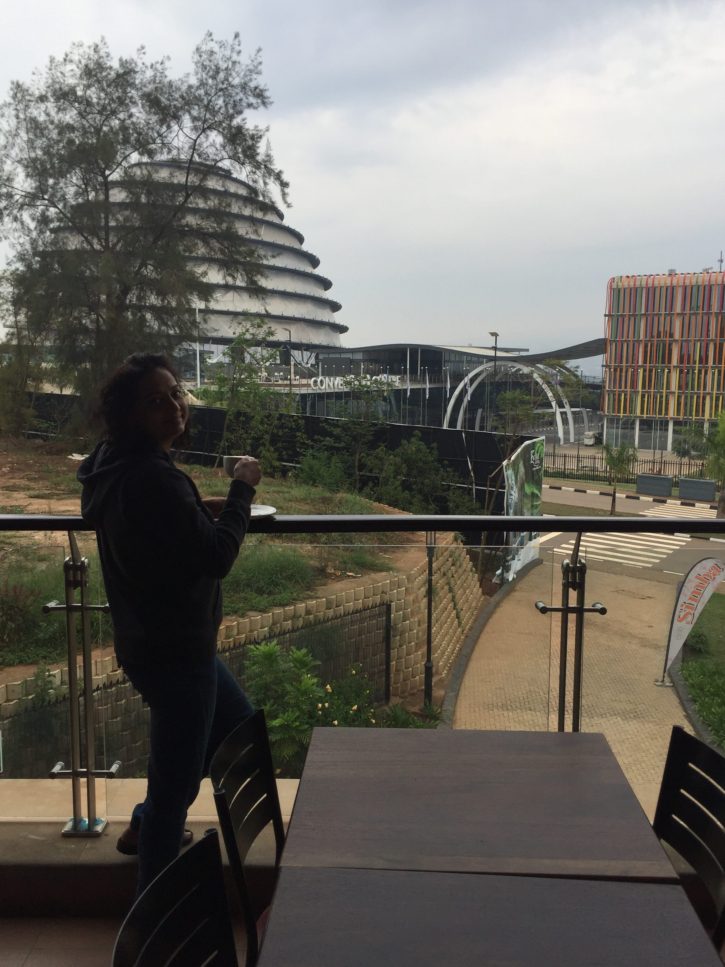
Truth is that I have no reason and this discovery makes me free. No more for me an agenda. No more the obsession to tick off a list or arrive on time. No more the pressing need to find a satisfactory answer to everything.
Like Rwandans, I am going to live a day at a time. I am going to approach a new adventure or a new place like I’d write a book. I don’t know what the pages will hold or what story will envelope in my mind or if I will fall in love with the experience I recreate or the characters I meet again on those pages. What matters is the sum total of everything I see and experience, the good, the bad and the ugly – the truth of what I see and not what I deemed to have seen or understood.
Like Rwanda.
Oct 19, 2017
Kigali Memorial Centre is a neatly kept genocide site which to a first time visitor with no prior knowledge might appear slightly misleading. It looks peaceful in the morning. Across the site on another hill, buildings rise into the skies, the streets below it buzz with traffic.
I am nervous as I approach the gates and walk past an armed security guard who cheerfully waves me through. A young man of medium height and wearing a shite shirt tucked in neatly approaches me no sooner I am under the arch.
“Welcome to Kigali Genocide Memorial. Do you need a guide?”
“Uh, do I? I am not sure.”
“Maybe a guide can explain to you better. Please come with me. You can take an audio guide, if you wish. Are you a student? You can get a discount.”
That is unexpected. I am not sure what it is about me that invite these suppositions, but I am pleased to hear it. In his gentle voice, he tells me there is no real need for a guide because everything has French and English explanation.
I ask him one question that I have been yearning to ask.
“Do the Hutu’s and Tusts’s hate each other today?”
“No. There is no explicit animosity between us now. But who knows the depth of pain and sense of injustice buried inside?”
There is no bitterness in his voice although if anyone has the right to feel bitter, it is them.
“I was very young then. My family is buried here.”
Briefly he tells me about the history of the site and shows me the way in. “You can see everything inside.”
The inside is very quiet. Walls are covered with photos. As I progress from room to room, the imagery gets disturbing. Visitors are quietly looking in bewilderment at archival documents, photos, video footage and weapons encased in glass trying to make sense of it all.
To provide a historical perspective, the indoor exhibit also delves into the sinister ideologies that provoked the world’s largest genocidal massacres from the Namibian genocide to the Holocaust. The Kigali Genocide Memorial is an important reminder that ethnic cleansing of this kind is a global phenomenon
As I progress from room to room, the imagery gets disturbing. Visitors stare in bewilderment at the archival documents, photos, video footage and weapons encased in glass trying to make sense of it all.
The indoor exhibit sheds light on the Rwandan genocide, as well its pre-colonial, colonial and post-colonial roots. To provide a historical perspective, the exhibits delve into the sinister ideologies that provoked the world’s largest genocidal massacres from the Namibian genocide to the Holocaust.
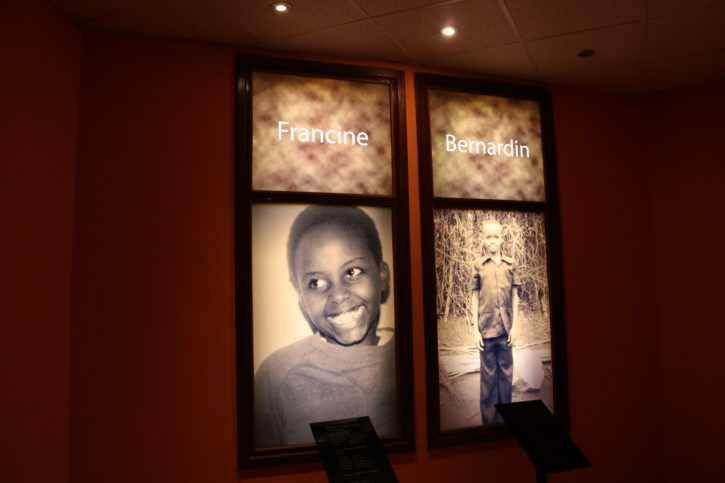
The children’s memorial room is particularly disturbing. From the details displayed next to their photos, I learn each child’s favourite foods and activities. It is like viewing a family album — except it abruptly ends with how the child’s life was violently snuffed out. I sit in a pentagonal room surrounded by thousands of photos of the deceased, trying to look the other visitors in the eye but everyone avoids eye contact for one reason alone.
Tears.
It seems unjust to try to condense this horrendous event to a nut shell, but I’m going to try. From what I’ve learned, the root cause of the genocide was the aftermath of colonial ideology. The genocide officially started on April 6, 1994 and lasted hundred days and most of the world powers turned a blind eye. The French stepped out within the first few days and the UN merely fulfilled a minimal duty. Not much was reported in the world media and although there were some brave individuals who fought back their efforts were not enough in the end.
Death was not its only outcome of the genocide. A large number of the population had been tortured, mutilated, raped, suffered machete cuts, bullet wounds, infection and starvation. The country plunged into mayhem, looting and chaos, with its infrastructure destroyed and its ability to govern ripped to shreds.
The morning leaves me struggling for words and infuriates me. My faith in humanity is shaken. Twenty three years ago ethnic cleansing was merely a subject of debate but now I feel differently. How the Rwandan genocide could have happened as the international community looked on just over two decades ago is unfathomable but it is important for us to understand. The Kigali Genocide Memorial is an important reminder that ethnic cleansing is a global phenomenon.
By the time I reached the exit, I am yearning for daylight and fresh air. All my energy has been sucked out of me. I step outside. Surrounding the centre are peaceful gardens for quiet reflection, created as if they knew visitors would need to recompose themselves after such a core-rattling experience. I inhale and exhale with intention and a sense of relief until I come upon the tombs. Covered by giant plates of concrete, mass graves for over 250,000 victims serve as a place for visitors to honour those lost, and for the loved ones of the victims to grieve and remember.
Did the drums beat for 100 days of 1994?
When swords wounded and killed and blood endlessly flowed
Did they fall silent or drown the cries of every man, woman and child?
In Rwanda’s darkest days of 1994?
I want to speak to someone, to see a face that has not been affected by this tragedy. Another tourist perhaps? Someone who comes from a happy place. And yet, I cannot let go. The urge to know more is getting stronger. Perhaps an outsider’s perspective will help round off my understanding. In the memorial book store, I find what I am looking for – a book titled Shake Hands With The Devil, by Lieutenant-General Roméo Dallaire of the Canadian Forces who led the UN Mission at the time of genocide. This, I hope, will give me a new perspective.
I decide to walk a little to clear my head before getting a moto to Nyamgenge Market.
The sight of crowded markets, the piles of multi-coloured fabric, pots and pans and plastic toys made in China are comforting. I absently bargain over the price of fabric and discuss designs, all the while thinking about twenty-three years ago.
Were there dead bodies lying when I stand at the moment? Does that forty-something woman has her parents killed? Is she a Hutu or a Tutsi? I have the urge to hug everyone and offer a word of comfort, a typical reaction of every visitor who at some point or the other after the visit displays. The reason behind that is a mystery, but it is what I am feeling. Will it do any good? Is it really any of my business to scratch their wound and try healing it with a hug? And suddenly, all ill-will has left me and I smile kindly when pushy women selling fabric in the market try to over-charge me.
For no reason, I take myself to a local bar. There are very few women here and I am being stared at. This bar is a mass of nationalities, Cameroonian, Burundian, Tanzanian, Belgian, Congolese, not to mention the Rwandans who were born or lived much of their lives in Uganda, Zambia or Malawi. I find it hard to believe this is the same city that is sometimes called “un-African”, or “Africa-lite”.
I want to forget what I have seen but at the same time I want to hold on to everything I have and try to make sense of it. My mind is thinking of various ways in which I can tell a story differently. Where do I begin? Do I know enough to scratch the surface?
I stare at the faces around me trying to picture them in their past. Young and old, everyone is talking over Primus or Mutzig. Have they seen murder being committed? Did they lose a parent? Friend? Family? How did they get this far? Do they talk about it? To whom? Does anyone care anymore?
A young girl appears at my side.
“Parlez-vous français? Do you speak English?”
“Oui.”
I am not linguistically schizophrenic. Rather, I just want to cover all communication bases. I order Primus. As my order repeats I get bolder and eventually join a group of young men around the table simply to be a part of their friendly conversation. I just want to hear them talk. I want to know what they talk about. They are speaking English which makes it even better.
I soon understand the reasons for this. Until 2008, Rwandan schools and classes were administered in French language. Then one day, the government declared English the country’s official language in schools. Poof. That was it. The reasons for the switch are many: English is more of a universal business language, most of Rwanda’s neighbors are English-speaking, and shared business language promotes trade and exchange. The switch further distances the country from Belgium and France and its colonial history with them due to their lack of support during the genocide.
October 20, 2017
I go easy on the guesthouse breakfast because I will spend the day at The Des Milles Collins, popular worldwide as Hotel Rwanda. The Hotel Rwanda. I am not sure if I should call a cab or just walk over to a moto. Is there a right way to arrive at this famed hotel?
In the end, I get on a moto taxi. It is the easy and quicker way to get there. I am dressed casually, in shorts and t-shirt, for I am a tourist. It is written all over me – a tired- looking but enthusiastic tourist. I have slept badly last night, imagining all sorts of things about today. What do I hope to find at Hotel Rwanda?
I have lost a kilo since I arrived in Africa a week ago but that could be due to the volcano trek in Congo, but I am glad for it. Africa has been good. Although I am eating and drinking all the time, I am glad it doesn’t show on me. Today, I am going to enjoy some luxury, Rwandese style.
At 10.30 am, I arrive at the neatly forested gates of this large, cream-colored building. With much excitement and curiosity I walk to the gate and enter feeling beautiful from the inside out; there is a reason for my slight grin, I am in my traveling element. I am finally here – at the place I have long dreamed of visiting. I am also going to take each moment as it comes, no agenda and no expectations.
A tall man at the gate who looks as if has been waiting for me to arrive, greets me warmly and I have a feeling that he wants to be the first to introduce me to the history of this hotel. His eagerness is clearly written on his face and his eyes shine with understanding twinkle.
“Good morning. Welcome to De Mille Collins. Enjoy your stay.”
“Thank you. I am really excited to be here. I mean, this is the place after all.”
I avoid saying the word genocide as though it will ruin the morning peace and somehow make me unwelcome.
“Yes, miss. This is the place. But it was long ago. Now everything is normal.”
Twenty three years is “long ago” if you were a child in 1994. The security guard looks in his late twenties but with the seriousness of a much older man. I try to picture him as a child in 1994.
Did he see his parents die? Does he have any family left? Does he…
I must stop connecting people to the past or try to find everything to relate to 1994. I do not know the extent of damage on the present generation, but I must stop being insensitive. I do not know of the best way to get them to talk, but what is my need to know?
I am afraid I am turning morbid.
Instead I ask him the best place to grab a drink and from his looks I know what he is thinking. It’s too early for a drink.
I quickly change it to coffee.
“You go straight into the hotel and beyond the reception area on the terrace, you will take coffee.”
I approach the gleaming reception with a smile. A smartly dressed young man is behind it. His name is Jameson.
“You might have heard this a hundred times before, but I am wondering if there is anyone around here, who was present here in 1994. Also, is there a way to get hold of Paul Rusesabagina, any email or phone number? Any ideas or suggestions? ”
Again, I avoid the word genocide.
“I will be with you in a few minutes. You will please come with me to the terrace.”
I follow Jameson out, hopeful of finding a link to a story that is developing in my mind. I know when I return home I will detail my Rwandan experiences and genocide will be an important part of that story. I want to know of smaller things related to the incident.
Once seated, I take in the beautiful surroundings. The decor is modern and luxurious but not gaudy. If anything, it feels like a peaceful spot in the heart of the city making it hard to believe it was once the hiding place of hundreds of Tutsis during the genocide. I can’t help but reconstruct the incident the way I know of it. Paul must have been a really brave man to risk his life for the Tutsis who sought refuge here. What must it be like back then?
I glance over the menu but I already know what I want. Coffee.
People are splashing about in the pool below.
Jameson is a quarter of an hour in coming but he does.
“I was looking for the contact of the person who was here in 1994, but he is already old now and doesn’t go about much. Maybe I can help you? What do you want to know?”
I tell him.
“I can tell you my story. All of us here, we have stories.”
“My father was killed when I was 6 years old. My mother, sister and I, we fled to DRC and lived in a refugee camp for a long time. We saw some horrible things happening around us. Months later we came back to Kigali and my mother somehow managed to send me to school. I used to wake up at 5am a few times a week and walk for miles for miles for water and many times slept hungry.”
Jameson is at university now on a scholarship and does odd jobs to make ends meet such as working at Hotel Rwanda. He is working hard to be connected to the mzungu culture. He is the sort of person who loves to learn about other cultures. He also knows that learning English and knowing mzungus is a good way to network and be successful here. He tells me that his Rwandan friends accuse him of trying to be mzungu.
He asks me a lot of questions about my life, about India and Dubai and my work.
An old man shuffles in and launches into a conversation in French.
“Vous parlez français?
“Non”
“Je ne parle que très peu anglais. I speak English little. You speak slow.”
“Errr, I am sorry, what is this about?”
He launches off in French and I look at Jameson in bewilderment.
“He wants to tell you his story. He says he heard you ask about this so he came to help.”
So in a matter of twenty minutes I have stories of two survivors. Jameson was a little boy, but the old man tells me how he hid in the cave when the attack started, staying hungry for a week. His wife and young sons were slaughtered and he regrets he could not save them.
“Je les entends crier,” and shuffles away.
I am not sure I want to know any more. Jameson leaves me promising to return soon with information on Paul. He is reserved when he mentions the name; there is no sense of pride when speaking of the man who the western media made out to be something of a hero. US President Bush, in 2005, presented Paul Rusesabagina with the Presidential Medal of Freedom, but Jameson clearly didn’t seem moved.
“I will see what I can do.”
I remember an article on Paul’s real role during the genocide, one which the movie Hotel Rwada glorified – hinting at Schindler, who rescued 1,100 Jews from the Nazis.
The report ended with “Rusesabagina was no Schindler.”
I need air. Too many similar stories and coupled with the images that come to mind from yesterday’s visit, I feel light headed. The lunch hour passes quietly. Jameson is sorry because no one seems to know anything about Paul.
“Thank you for trying.’
Jameson looks relieved.
The pool is full of happy children and mothers chasing them. Tourists randomly engage in conversation and every one of them are here for a photo and a coffee but interestingly it is the youngsters who are keen to be photographed against the hotel.
It will be night soon. The live band has started playing at the pool bar and I adjourn to the pool side to become a part of this moment. The music is a typical mixture of slow Rn’B and soul. The barman tells me that music is one way of bringing people together.
“Has that helped, since you know, the genocide?”
“Our music heals the heart. I used to listen to the late Kamaliza’s song, Humura Rwanda Nziza when I was six years old. The genocide had stopped, although I can’t say that it helped me a lot, it gave me hope for a better tomorrow. In the same way, I want to believe that our songs will still be here long after we are gone. They will educate the future generation, bring them closer and give them a clear picture of the times their forefathers lived in. I believe this is how music is contributing to the reconciliation process.”
It is easy to see how much these musical gatherings mean to the local people. I feel myself enveloped in the moment before I am forced to grab my drink and return to my earlier spot on the terrace overlooking this lively gathering. There are far too many people jostling for space and talking over the music. The drinks are over-priced but that hasn’t slowed down the trickle of people.
Kigali is slowly turning into a sea of twinkling lights. Beyond the edge of the pool, lights have come up and hotel looks warmer by these yellow lights. I head to the roof top restaurant aptly named Panorama.
There are lights as far as my eyes can see. Lights dancing on hill tops and in the valleys, twinkling like a million stars unmindful of the watchers. It is mesmerizing. Somehow the night has turned this city of thousand hills into a fairyland. I have seen no sight such as this.
And to crown the moment, rainclouds appear. Lightning flashes and suddenly rains come down. Light catches the falling rain and as though it was possible, Kigali turns even more beautiful.
I end the night with wine and grilled meats, which doesn’t come cheap. But to be here, to watch, to breathe and to understand means everything to me.
The music stays with me till I go to bed. In it is hope. Rwanda has done a remarkable job with healing its wounds and has taught me about the power of forgiveness. The day has been an eye opener and the night is a reminder that morning will come again.

